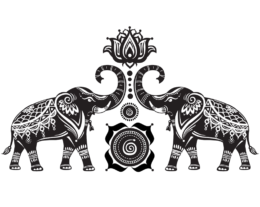Calling it an improvement, which will “re -define the terms of good governance”, President Draupadi Murmu said that ‘One Nation, One Election’ Bill “Bill” Policy Paralysis, Resource Division reduce the division and reduce the financial burden ” Will help in
“Reforms of such magnitude require anxiety of vision. Another measure that promises to redefine the terms of good governance, is the bill introduced in Parliament to synchronize the election schedule in the country Is. ‘One Nation One Election’ plan can promote continuity in governance. Addressing the nation on the eve of 76th Republic Day. Reduce
Prime Minister Narendra Modi has often emphasized the need for simultaneous election, arguing that the country creates significant costs and disruption from the ongoing seasons.
Former President Ram Nath Kovind, who has led a panel on ‘One Nation, One Election’, has said that the idea of elections simultaneously was considered by the Frams of the Constitution and hence it cannot be unconstitutional. He explained that by 1967, the first four Lok Sabha and Assembly elections were held simultaneously, asking how the synchronized elections could be dubbed as unconstitutional.
The Congress has argued that simultaneous elections are against the basic structure of the Constitution and it will oppose the “teeth and nails”. It has also said the idea of ’One Nation, One Election’ anti-decantic and anti-federal.
In addition to covering the electoral cycles, there is no real clarity on how to deal with the break due to the disintegration of the houses, the rule of the President, or even a Hung Assembly or Parliament.
The President insisted on the ongoing efforts of the government, “Cited the replacement of criminal laws of British-era with three new modern laws to eliminate the remains of a colonial mentality who have been in the country for decades”.
“We are looking at concrete efforts to change that mentality … The reforms of such magnitude require the audacity of vision,” he said.
He referred to the introduction of the Indian Judge Code, the Indian City Surkita, and the Indian Sakshiya Adhiam, which only prioritize delivery of justice on punishment and emphasizes addressing crimes against women and children.
The President pointed to a continuous high economic growth rate in recent years, which have created job opportunities, increased income for farmers and laborers, and have removed many poverty.
He underlined the importance of the government’s commitment to inclusive development and welfare, which led to basic requirements for citizens such as housing and access to clean drinking water entitlement.
Efforts to support marginalized communities, especially Scheduled Castes (SC), Scheduled Tribes (ST), and other backward classes (OBCs) were also highlighted.
The President highlighted the inclusive nature of the constituent assembly, which represented diverse communities across the country, including 15 female members, who played an important role in shaping the democratic structure of the country.
“When the equality of women was a distant goal in many parts of the world, Indian women were actively engaged in the fate of the country,” she said.
The Constitution, according to the President, has developed in a living document that serves as the foundation of India’s collective identity and has guided the progress of the country in the last 75 years.
The President praised the early freedom fighters of the 20th century, which for uniting the nation in a well -organized freedom movement and credit for the prestigious data like Mahatma Gandhi, Rabindranath Tagore and Babasaheb Ambedkar help India to find its democratic values again We do.
“Justice, freedom, equality, and fraternity are not just modern concepts; they have always been an integral part of our civilized heritage,” he said, seeing that the future of the Constitution had proved wrong.
(Tagstotransite) President Murmu (T) One Nation One Poll



